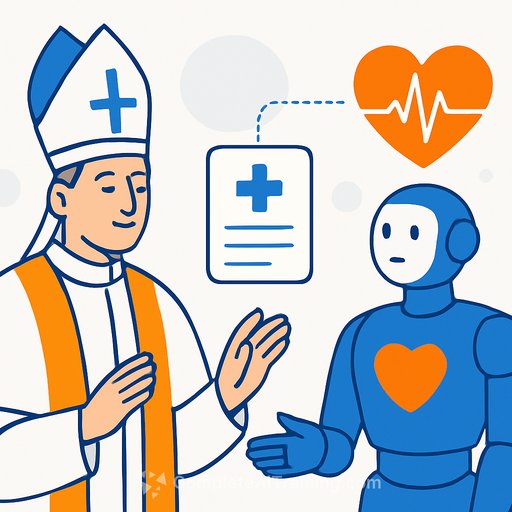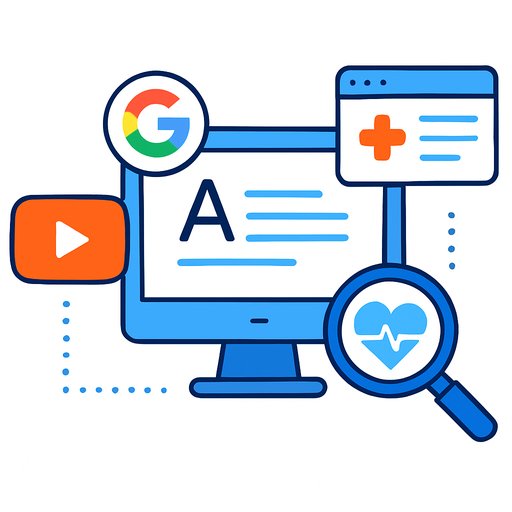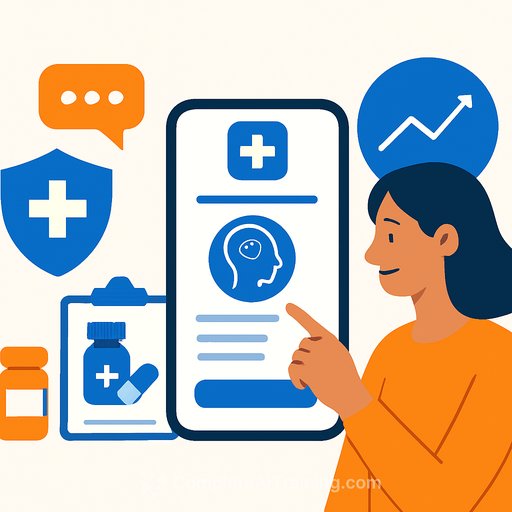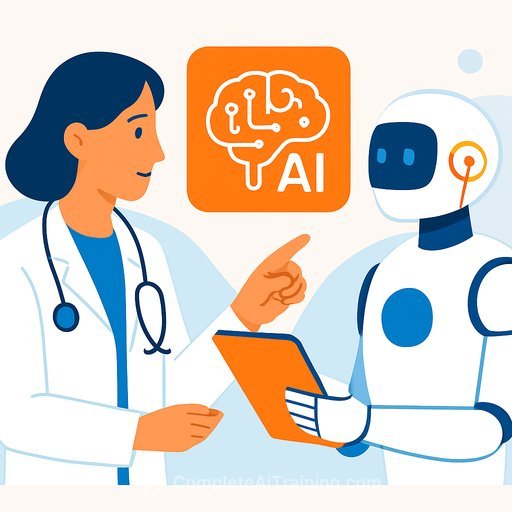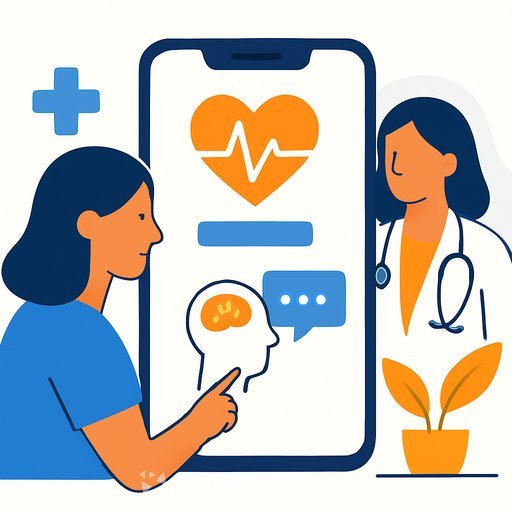AI in healthcare must protect care quality and human relationships, says Pope Leo XIV
The Pontifical Academy for Life opened its international congress, "AI and Medicine: The Challenge of Human Dignity," on November 10-12. As the event began, Pope Leo XIV sent a message urging participants to keep artificial intelligence at the service of patients, clinicians, and the common good.
He acknowledged the clear benefits of technology in medicine. Yet he warned that constant interaction with machines can distort how we see ourselves and others, and even make us forget what makes care human.
Why this matters for clinicians and health leaders
Pope Leo XIV stressed that healthcare is more than problem-solving. It's expertise plus presence-the technical and the relational working together.
AI can support diagnosis, workflows, and access. But it must never replace the patient-carer relationship or erode the dignity of the person in front of you.
What responsible AI looks like at the bedside and across the system
- Prioritize use cases that give time back to patients: ambient scribing, inbox triage, scheduling, risk flags-paired with a clear goal of more human interaction.
- Keep a human in the loop for diagnostic and therapeutic decisions. Define clear override rules and escalation paths.
- Validate models on your population. Monitor performance and drift continuously; require independent safety and bias reviews.
- Protect data dignity: strict PHI controls, least-privilege access, de-identification where possible, and complete audit trails.
- Demand clarity: patient-facing summaries of what the AI did and why; clinician rationale remains primary in the record.
- Consent and transparency: tell patients when AI is used and how it affects care; offer an opt-out without penalty.
- Chart the AI's role: record inputs, outputs, and the clinician's judgment for accountability and learning.
- Measure what matters: outcomes, safety events, time-to-care, patient experience, and clinician workload/burnout.
- Procurement with teeth: data ownership, security, update cadence, incident response, audit rights, and exit plans written into contracts.
- Governance that can say "no": a cross-functional oversight group with ethics, clinical, technical, legal, and patient voices.
- Staff training and drills: failure-mode rehearsals, safe prompt practices, and PHI handling for every role that touches the tool.
- Equity checks: language support, accessibility, and safeguards for underserved groups; keep human channels open.
- Don't let cost-cutting hollow out care: avoid using AI as a pretext to reduce staff where human presence is essential.
- Share learning beyond borders: common evaluation protocols, open incident reporting, and collaboration with peer systems.
Key lines from the Pope's message
"We currently interact with machines as if they were interlocutors… We run the risk of losing sight of the faces of the people around us, and of forgetting how to recognize and cherish all that is truly human."
He reminded healthcare professionals of their vocation "to be guardians and servants of human life," grounded in the "ontological dignity" of every person. And he cautioned against letting large economic interests dictate the terms of care, urging broad cooperation between healthcare and public policy across nations.
Bottom line: "If AI is to serve human dignity and the effective provision of healthcare, we must ensure that it truly enhances both interpersonal relationships and the care provided."
Standards and guidance worth bookmarking
For implementation teams, the WHO's guidance on ethics and governance of AI for health offers practical guardrails and policy direction. Read the WHO guidance.
Next steps for your team
Pick one high-friction workflow, define a patient-centered success metric, and pilot with strict oversight. Commit to ongoing evaluation and clear communication with patients and staff.
If you're building internal capability, a structured learning path can help clinicians, data teams, and ops speak the same language. See curated options by role: AI courses by job.
Your membership also unlocks:

